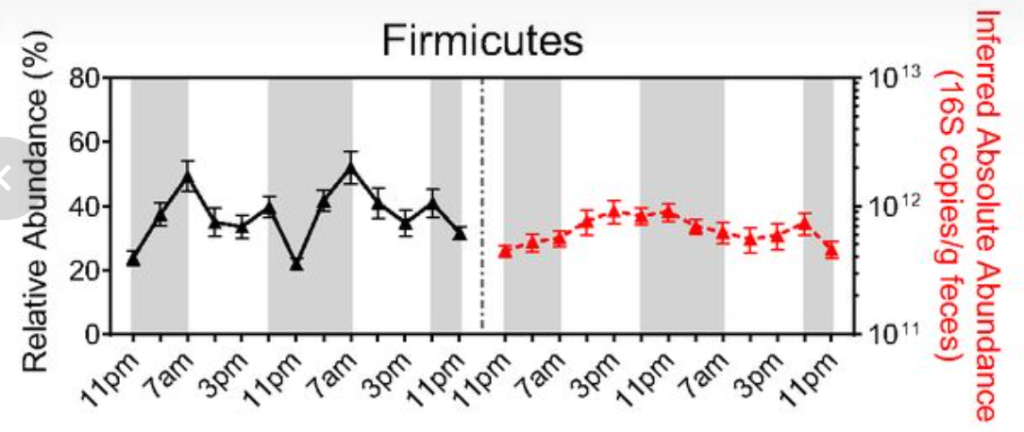While working on a different blog post, I came across this study with a nice collection of charts to illustrate the importance of taking samples at the same time of day! It also makes implication that microbiome testing firms should be asking for the time of day that samples was taken (and provide gender, age and time of sample reference ranges — if they want to be creditable)
Rhythmicity of the intestinal microbiota is regulated by gender and the host circadian clock [2015]






See The Circadian Clock Protein BMAL1 Acts as a Metabolic Sensor In Macrophages to Control the Production of Pro IL-1β [2021] for more information on BMAL1
Bottom Line
I have often compared the microbiome to a city. If you do a opinion survey, when in the city you take the survey and the time of day has a huge impact. Taking it at 7am in the morning, you will be bias for office workers. At 2pm, likely female shoppers. At 4am likely make shift workers.
For people with severe ME/CFS, they often struggle with circadian rythm. It often changes quite a lot from week to week, and they sleep can be spread in small sessions both night and day. I wonder how this will affect the microbiome and the stability and validity of test results….
This is an area like a chicken and the egg. Sleep issues causes microbiome changes — microbiome changes causes sleep issues.
My personal experience is that for most probiotics, taking just before bedtime helps with sleep. I say most — because a few of them will actually cause issues with falling a sleep.
If you have single strains probiotics, you may wish to experiment with the impact of individual strains. Take one consistently at bed time for a few days to see the impact (if any).
One’s that cause wakefulness, may be ones you should take in the morning.